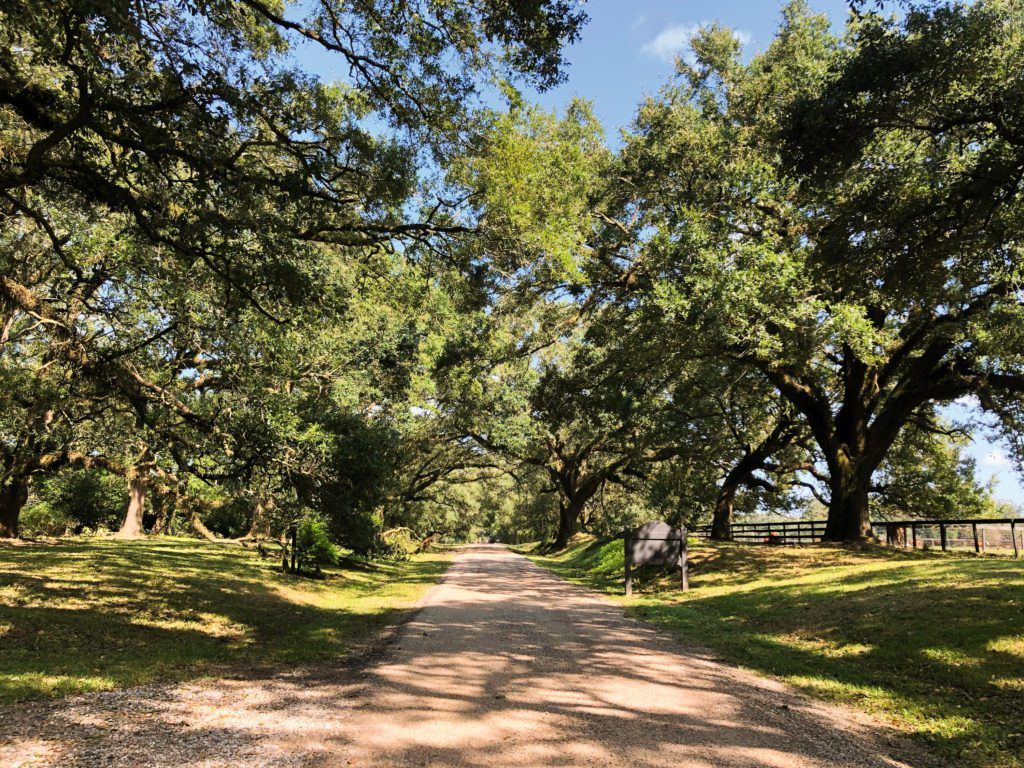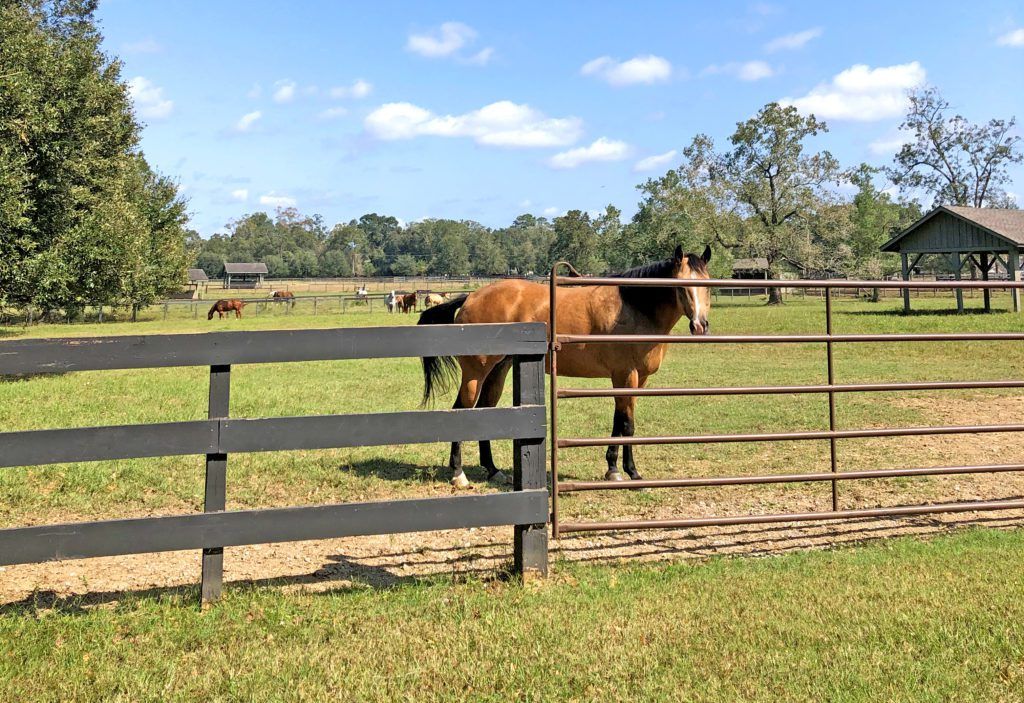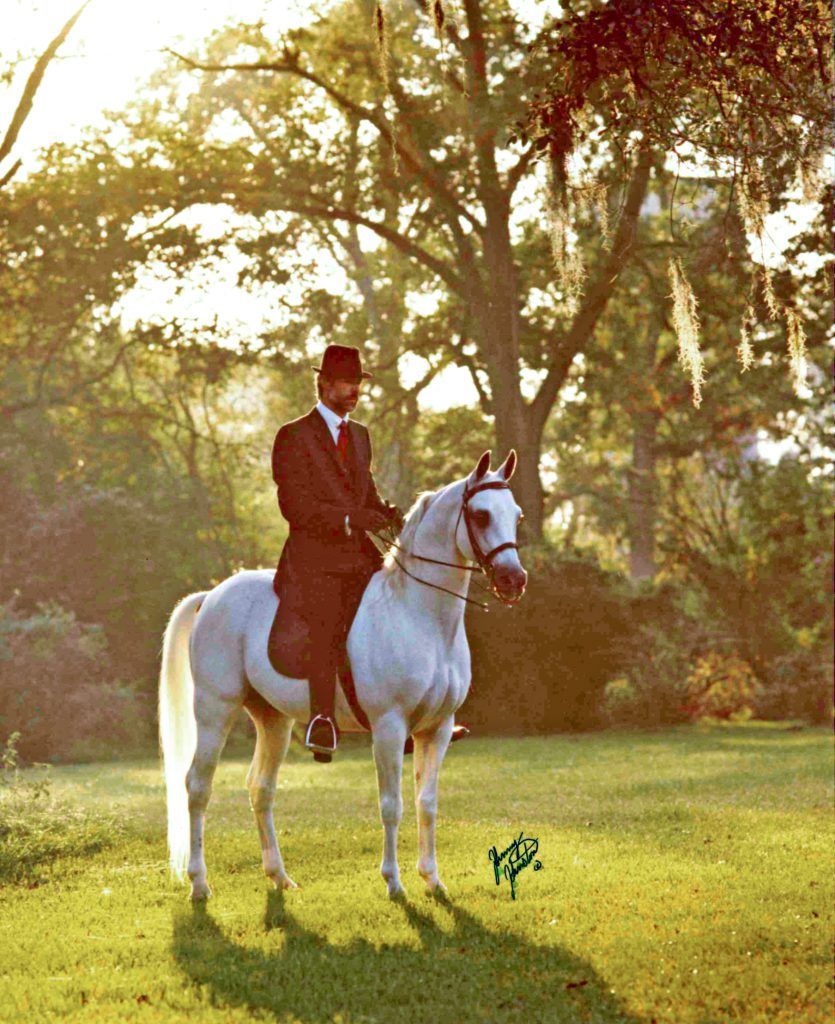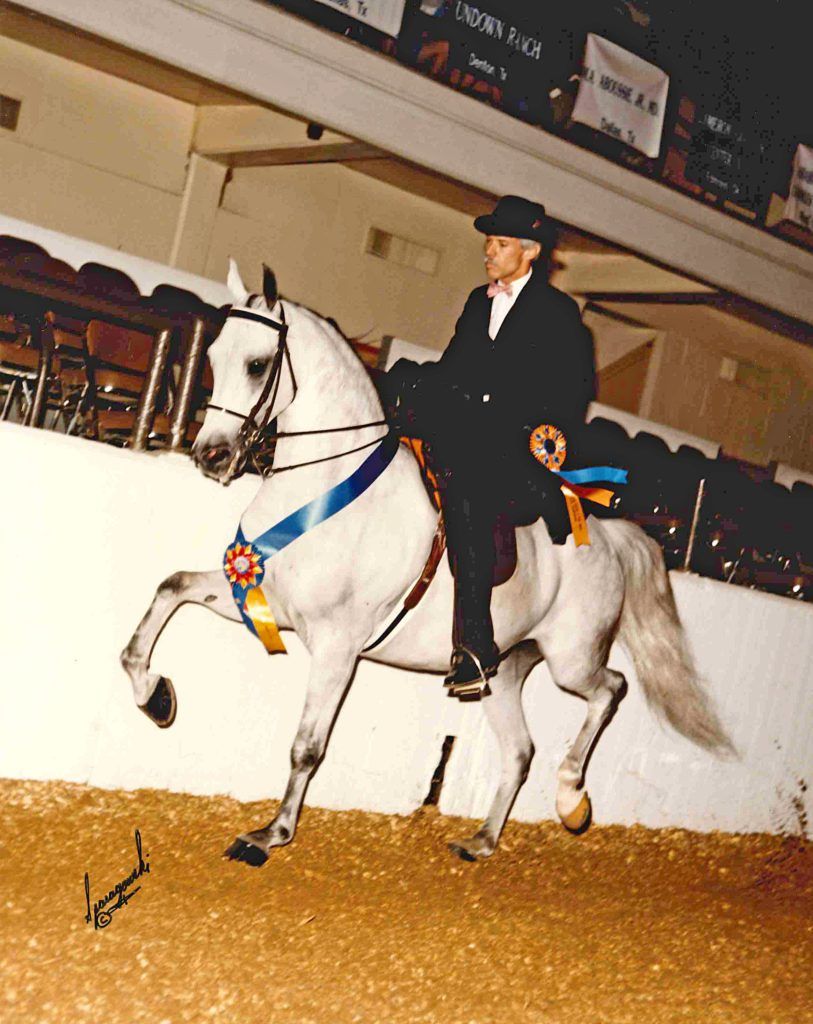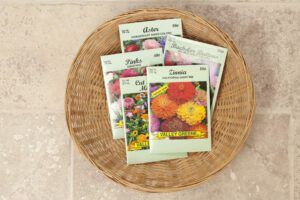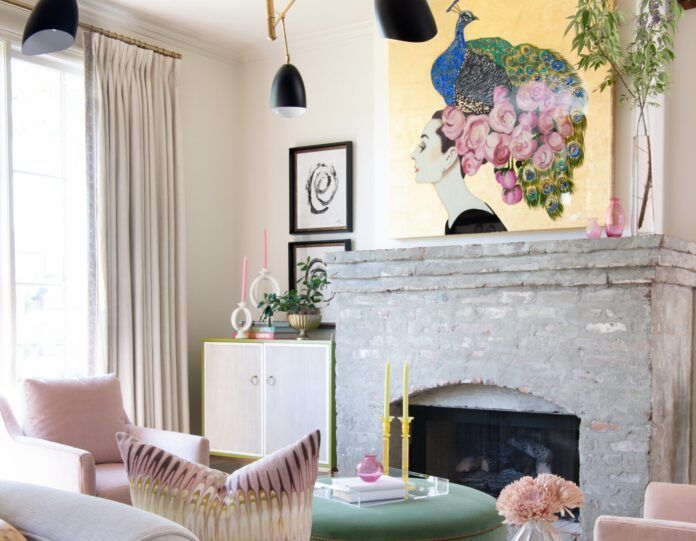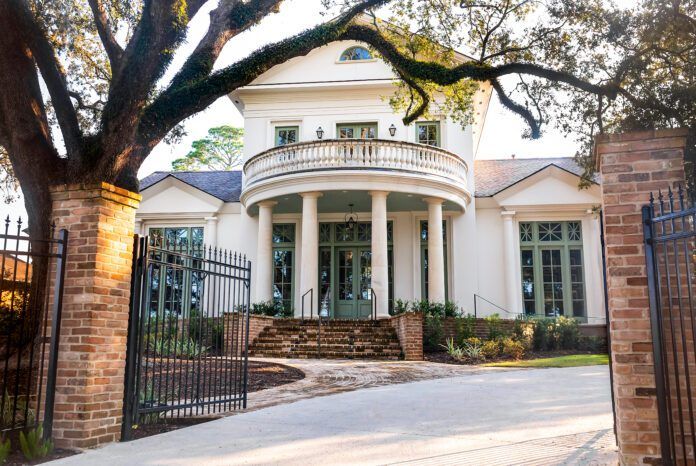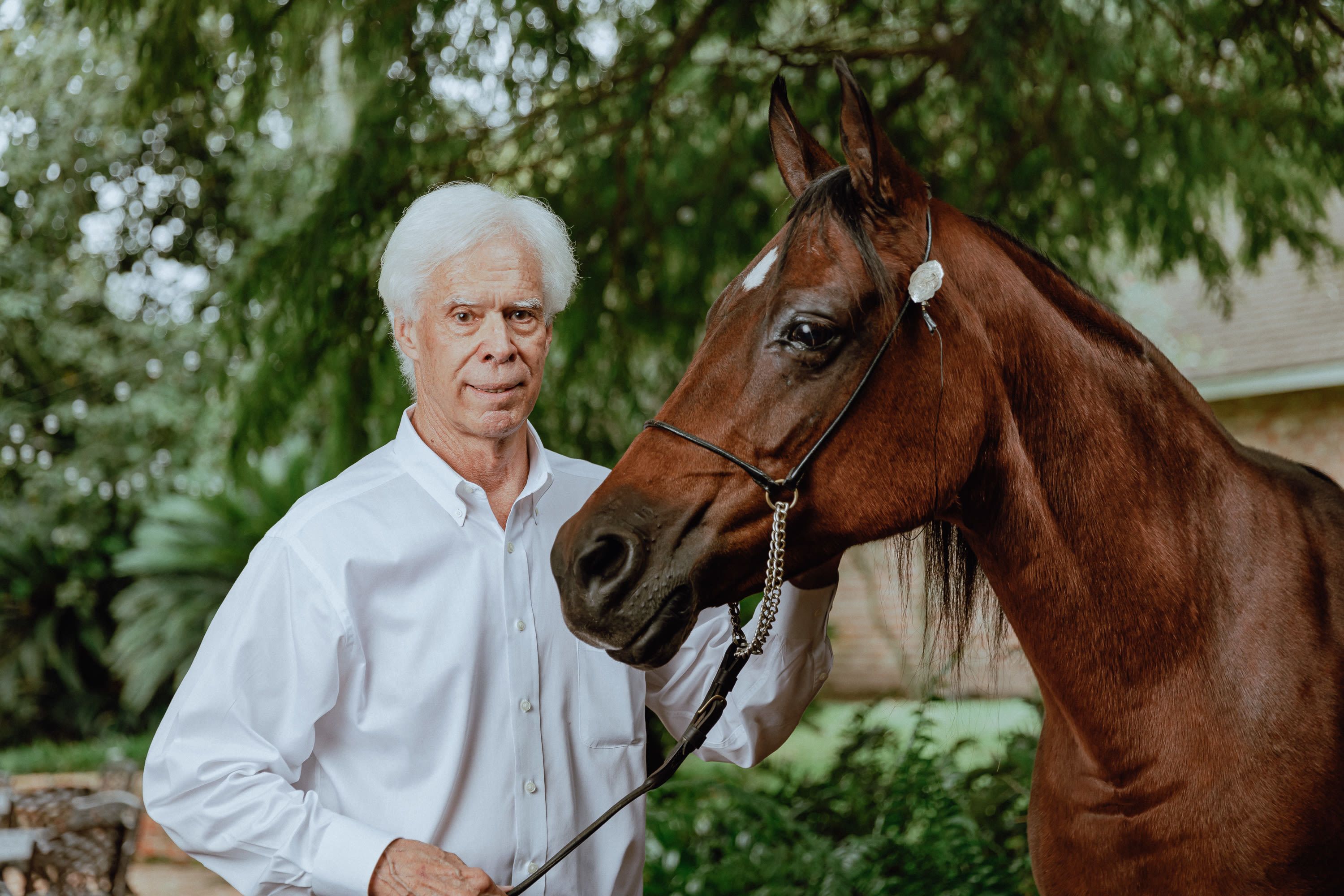
Live Oak Arabians stands as a relic of rural Baton Rouge in the middle of the city
Sitting in one of the historic houses on the grounds of Live Oak Arabians off Jefferson Highway, Phil Witter closes his eyes and recounts one of his strongest memories: sitting on a horse looking out at grazing cattle alongside his grandfather when he was just 4 years old.
“I learned to ride horses when I was young,” he says. “It’s always been a part of my life. And so has this land.”
The land that Witter knew as a child—the land that has been passed down in his family for generations—has changed immeasurably since his early days learning to ride and drive cattle. Once stretching from one side of Baton Rouge to the other and encompassing 1,800 acres, the property has been slowly transformed along with the city around it. Strip malls, neighborhoods, offices. These staples of modern day have taken the place of many of the large pastures and rustic barns that were long maintained by Witter and his family. However, one 250-acre plot of land remains.
Witter’s Live Oak Arabians ranch stands in the middle of this bustling scene as a throwback to days past. Driving under the large oak trees that line the property’s entrance is like taking a trip back in time to a Baton Rouge with a slower pace.
Around 60 horses call the 250 acres of Live Oak Arabians home. And while they’re often missed, the pastures are visible from busy Jefferson Highway. Photos by Riley Bienvenu Bourgeois.
“The story goes that my grandfather planted the live oaks after a hurricane in 1905 that blew down three barns, three silos and many of the cedar trees,” he explains. “There’s lots of stories like that around the property.”
Pointing at a cast iron indigo pot that now sits as a planter outside the main barn, which houses Witter’s show horses and acts as the backdrop for this month’s inRegister cover story, he plays out the stories of his ancestors in his mind. Those who made their way along the Mississippi River by boat, those who found their way to south Louisiana around the year 1700, and those who fought for their land and heritage as part of the Algonquin tribe.
“I think that’s where I get my love for horses,” he says. “Also, Phillips means lover of horses, so I think I was always predisposed.”
Witter didn’t always plan on pursuing a career breeding and showing horses and cattle, though. Despite having a steadfast love for animals and his family’s land, he went off to college at Vanderbilt University, majoring in political science and economics, and even spent a short time in Holland studying international law. But with family always coming first, he returned to Baton Rouge in the early 1970s to care for his parents and the property.
Up until this point, the animals here were for utility, helping further the everyday functions of the ranch. However, under Witter, they found their place in the spotlight. In 1972, he launched Live Oak Arabians, the horse and cattle showing part of the business that would carry the ranch into a new age—one with national and international acclaim.
“I only have records back to 1986, when everything was put on computers. But since then, we have had 1,133 champions and 1,194 that have placed in the top five,” he explains, recounting the statistics from memory. “I’ve had people tell me, ‘Your Live Oak-bred horses have won every championship.’”
Traveling to national competitions as well as contests overseas, Witter has what he refers to as “the recipe”—that perfect blending of horse breeds that yields winning horses that are strong both in look and in performance. His Arabian horses, a breed that finds its origins on the Arabian Peninsula, are crossed with other breeds that have strong traits and bring with them things that the Arabians lack.
“As you breed, you begin to get predictability,” he says. “But horses are like musical instruments. Like a wall of guitars, each will work differently and change over time. It’s about good tuning and learning to adapt.”
“I’m not much of a watcher,” explains Witter, noting that while judging shows has become part of his life, he prefers to be more hands on. “I enjoy the horses themselves, learning their personalities and seeing what they’re capable of.” Photos courtesy Live Oak Arabians.
The same goes for the show cattle, which four-year staffer Beau Parrish is currently in charge of as the farm and show manager. Purebred Hereford and Angus cattle also travel across the country, but while horses are judged in competitions based on both physical appearance and skill, cow shows are like “beauty contests,” according to Parrish.
“We bathe and groom them daily and train their hair to go forward, making them look fluffy. It’s like a spa day every day for them. They’re treated better than most people,” Parrish says with a laugh.
But it’s not all about perfection. Parrish and his team are currently caring for a blind calf named Ray Charles, and Witter has been known to take in abused or neglected animals. They fit right in among the 60 or so horses and just over 300 head of cattle that now call the ranch home. “We also have dogs that show up here and become part of the family,” Witter says. “I love animals, and if I can give them a good home, I want to.”
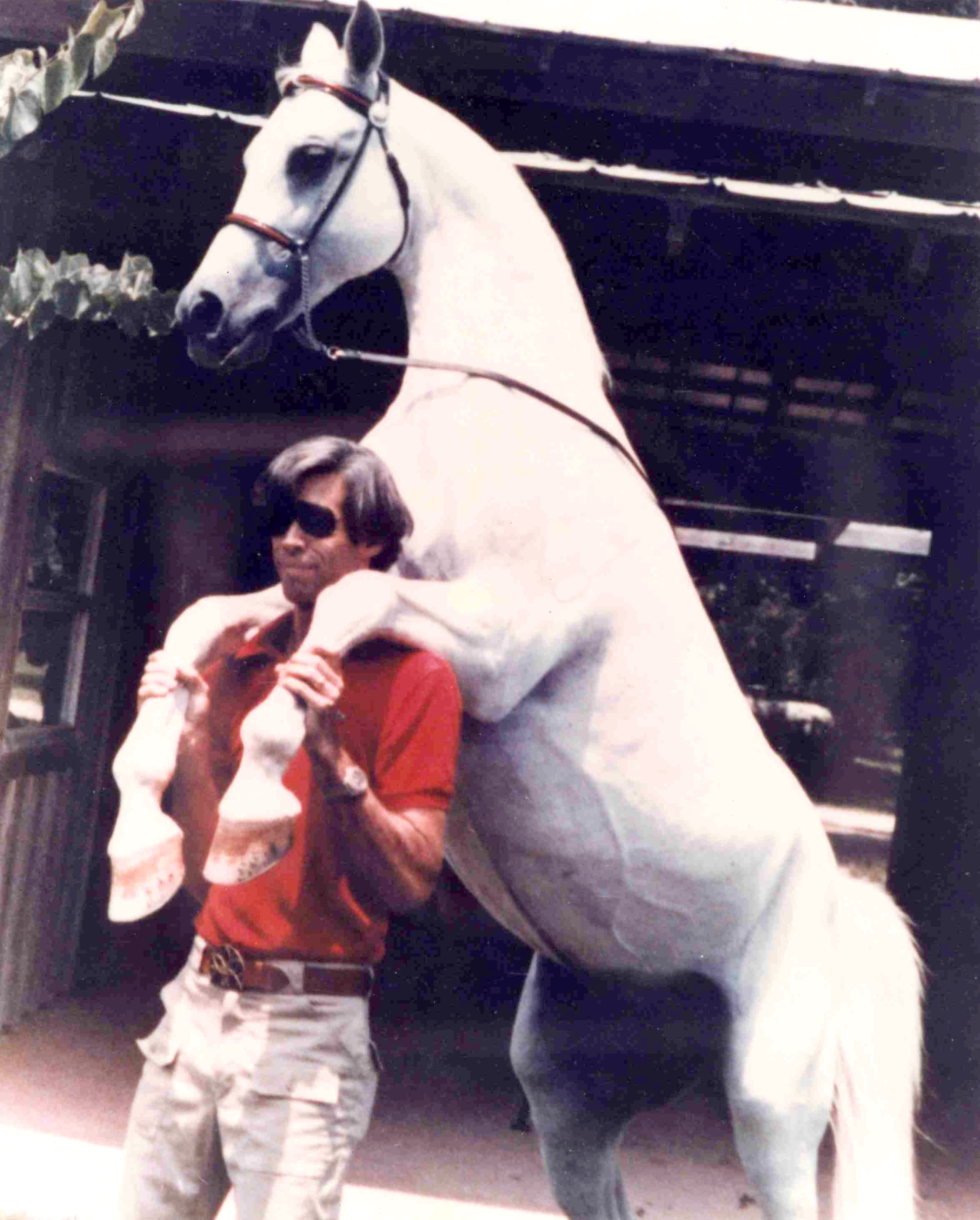
That sense of family extends to the larger Baton Rouge community, as Witter is currently working to remodel the historic main house on the property, in addition to constructing a brand-new chapel, in order to further the ranch’s function as an event venue. For 25 years, organizations like the Louisiana Wildlife and Fisheries Foundation have hosted annual fundraisers in the Live Oak Arabians’ dirt ring, steadily increasing the amounts collected from year to year, according to Witter. And with the latest renovations and additions, Witter and his team are hoping to accommodate more types of events, including weddings.
“We have something so out of the ordinary here,” Witter explains. “A farm inside the city—that’s special and we want to share it.”
In the coming months, Live Oak Arabians will be rebranded as Live Oak at Cedar Lodge, a name that gives a nod to the original name of Witter’s family property, Cedar Lodge, while also shifting the ranch’s focus to include the local community at a greater capacity.
“I enjoy sharing this place because it is truly unique and it holds so much history,” Witter explains. “I want everyone to experience what we have here because it really is so special.”




